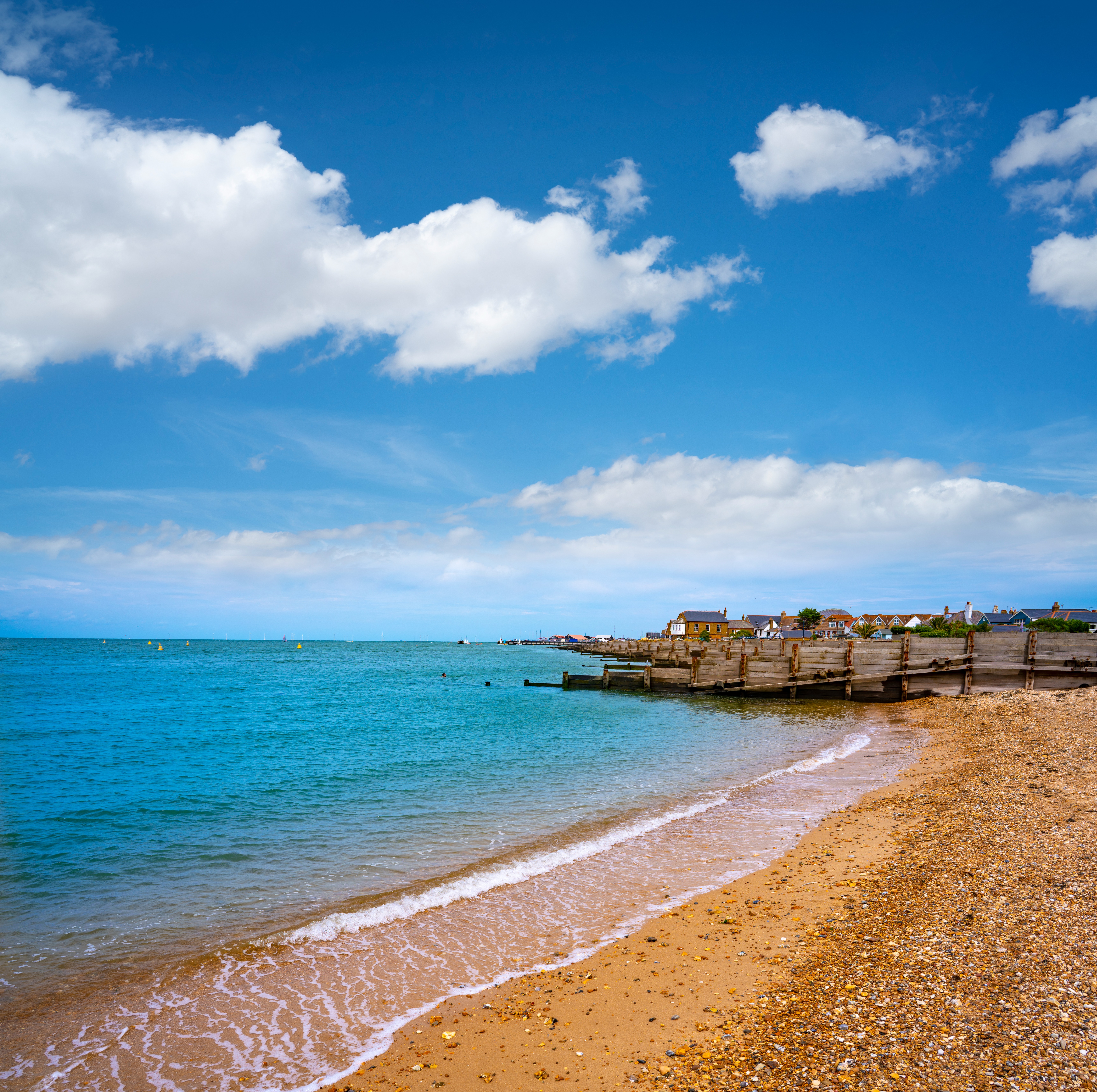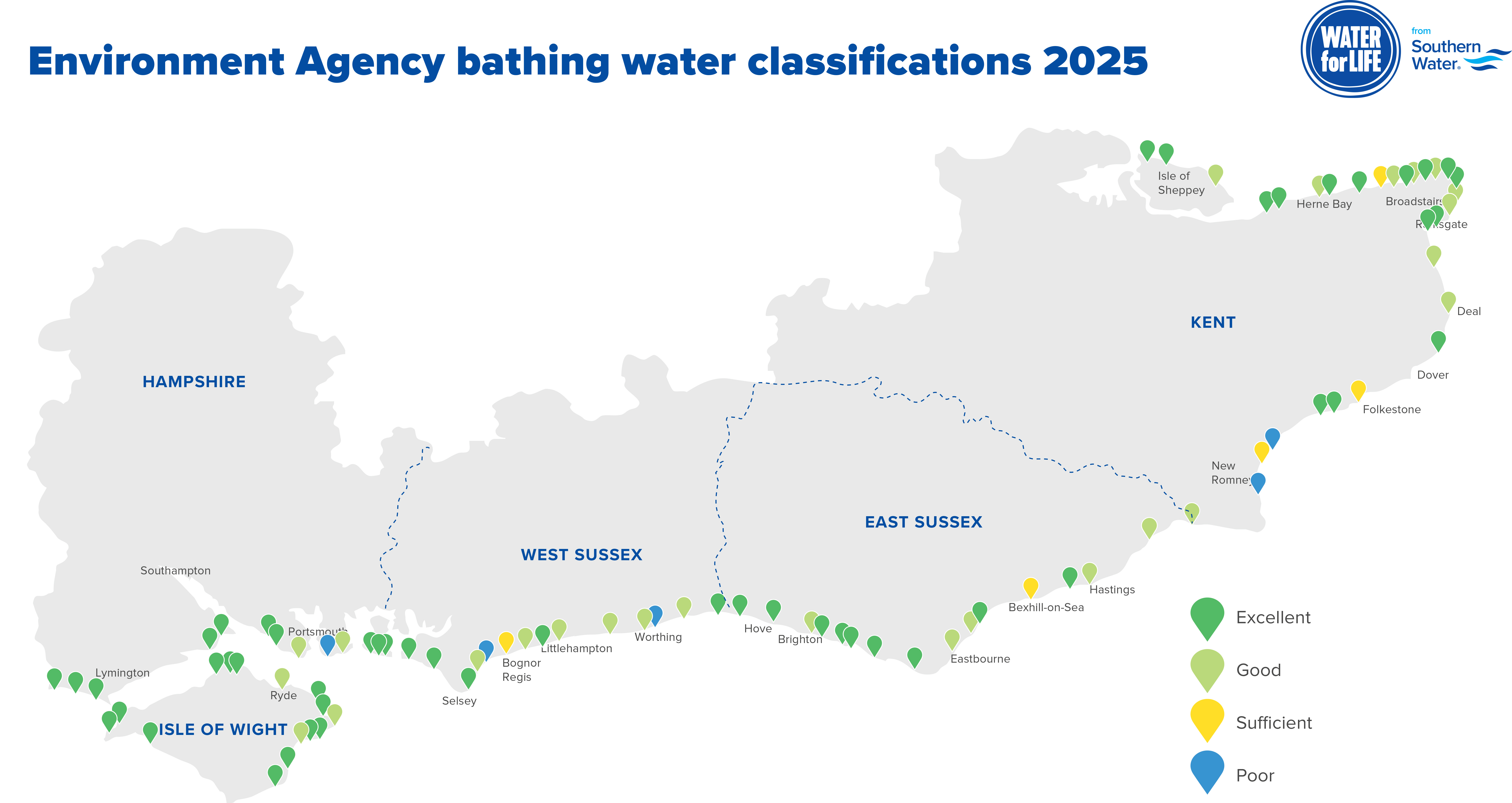
Partnership working drives bathing water improvement regionwide
Collaboration between partner agencies to protect and enhance the water quality of our 87 designated bathing waters is reaping its rewards along the region’s 700-mile coastline.
Working with partners to improve bathing waters
This year’s annual bathing water results from the Environment Agency (EA) show that nine sites have seen their classifications improve.
Dr Nick Mills, our Director of Environment and Innovation, said:
“So many factors influence water quality that there’s rarely a ‘silver bullet’ solution to protecting and improving water quality. But an amazing agility and willingness by all sorts of parties to work together is really starting to pay off. The more we all work together, the better things will get.”

In various locations along the coast, bathing water quality action groups have been formed - featuring members from councils, the EA, community groups, Inland Drainage Boards, Southern Water, and other partners too.
There are many factors which can impact bathing water quality, including highway, industrial and agricultural run-off, wildlife, beach and water users, illegally connected private pipework to surface water drains, and the influence of storm overflows in certain locations. That’s why it is so important to pool expertise and resources.
The EA bathing water results for 2025 show:
- Five bathing waters – Ramsgate Western Undercliff, Gurnard, West Beach Whitstable, Rottingdean, and Minster Leas – have improved, going from a classification of ‘Good’, to ‘Excellent’.
- Deal Castle has improved from ‘Poor’, up two categories to ‘Good’.
- Three bathing waters have improved from ‘Sufficient’ to ‘Good’ – Goring Beach, Worthing, and Herne Bay Central.
- Unfortunately, three have dropped back from ‘Excellent’ to ‘Good’ – Hastings Pelham Beach, Margate The Bay, and St Mildreds Bay.
Led by our Clean Rivers and Seas Task Force, we are playing our part by investing heavily in improving bathing waters. This past year alone, we have delivered a regionwide programme of sewer CCTV investigations and fast-tracked repairs, launched major projects to build sewer resilience in Worthing, Bexhill, Folkestone and Deal, and undertaken checks at 254 pumping stations and treatment works ahead of the start of the 2025 bathing water season, with any required improvements carried out.
Meanwhile, we have doubled the size of our illegal connections team – the ‘Sewage Sherlocks’ whose job it is to find where private wastewater pipes have been wrongly plumbed into surface water drains.
This year they have found a massive 71 illegal connections, including a block of 15 flats which was discharging sewage straight into the River Itchen in Hampshire.
This is all part of our wider £1.5bn Clean Rivers and Seas Plan aimed at drastically cutting storm overflows across our region by 2035 – with a plan of action for every outfall.
But Rob Butson, our Bathing Water Lead, explained that cooperation between partners was the most important aspect. He said:
“Examples have included South East Kent where Councillors, officers, the EA, ourselves and the community have pulled together to drive improvements in the area, while in Sussex, we teamed up with the council to tackle contamination coming from Egerton Ponds in Bexhill, and have plans to join forces on other locations next year.
“In Portsmouth, a leak was identified in a sewer pipe beneath Southsea Pier and the council didn’t hesitate to invest in making repairs, while new bathing waters engagement meetings have started in Folkestone and Hythe so that we can share information and local knowledge.
“Lastly, we have come together with a range of stakeholders to back the Yellow Fish campaign across Sussex, which highlights the impact of polluted surface water drains, and plans are in place to take it to Hampshire and the Isle of Wight next.”
Councillor Vicki Wells represents Worthing at Adur and Worthing Council. She said:
“With five miles of cherished coastline, Worthing residents are rightly passionate about the health of the marine environment.
“Positive partnership working is fundamental to see the improvements we all want to achieve. Working closely with the Environment Agency and Southern Water - with regular liaison meetings and joint initiatives like the Yellow Fish campaign also help raise public awareness of the many and varied sources of pollution.
“There's more to do to find and fix sources of pollution impacting our coastal water, but I'm delighted that two Worthing bathing designations have been classified as 'Good.' This testifies to the dedication of all the teams, working hard on this fantastic collective effort.”
